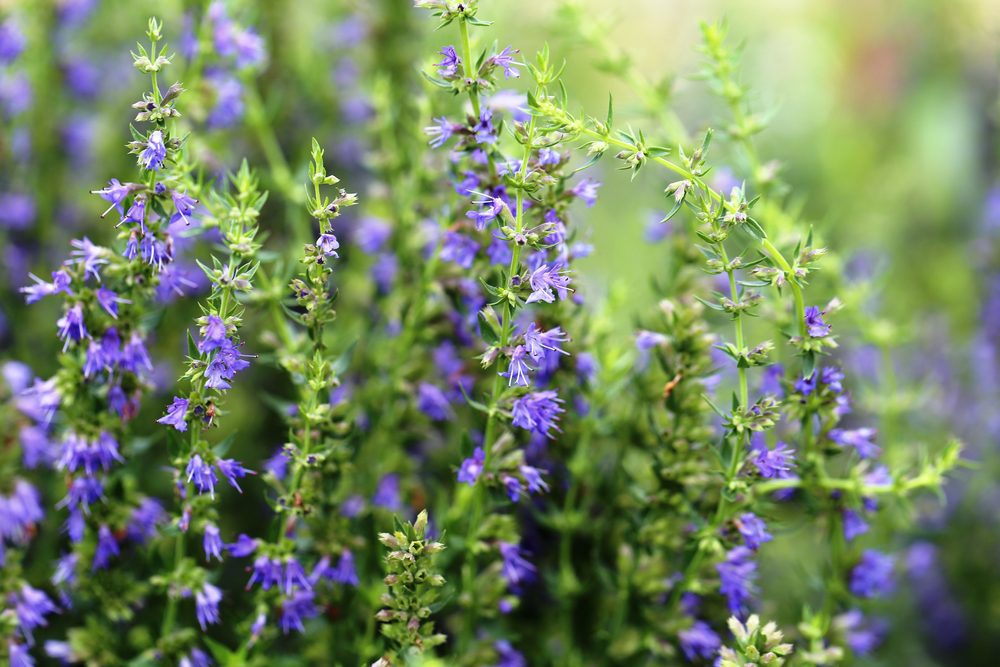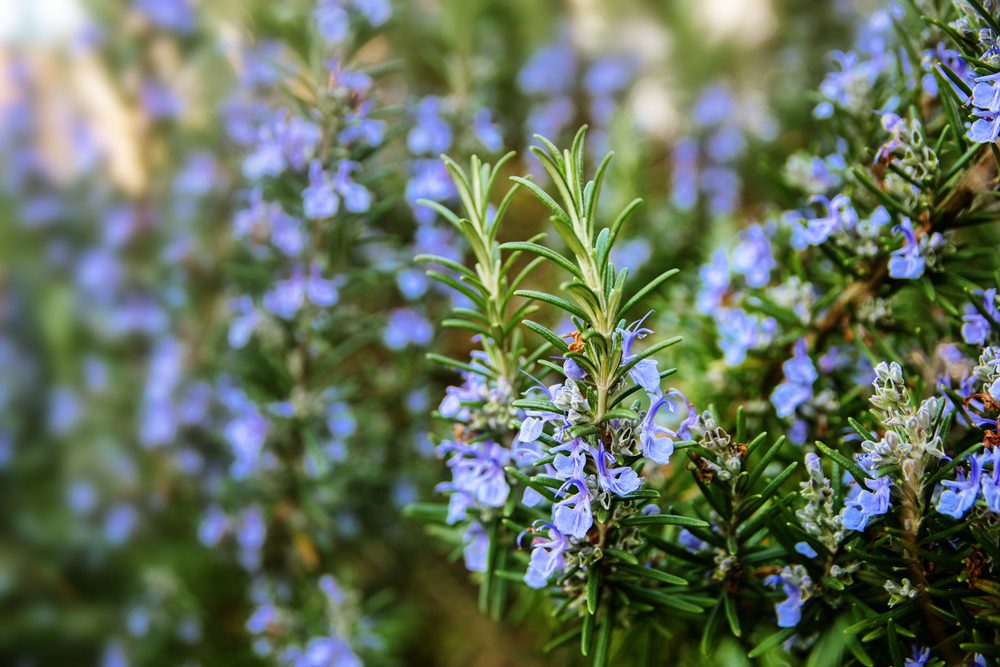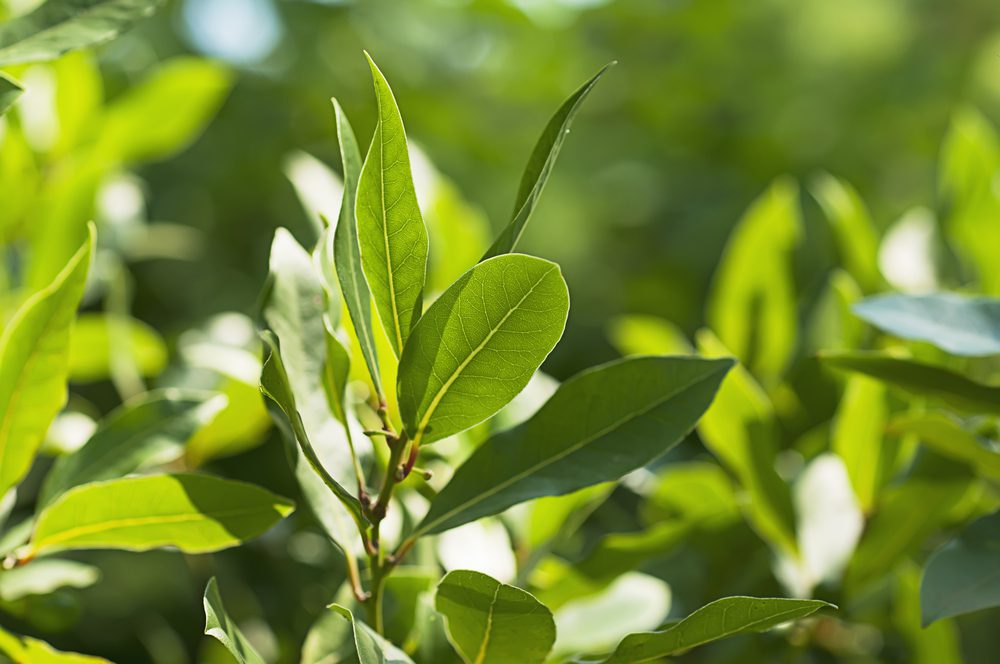Why not enjoy these perennial herbs that will bring you joy and a pop of green for the next few dozen years?
If you always hoped to be able to start gardening, but you found it a bit too intimidating, you should definitely give perennial herbs a chance. They are some of the “easiest to grow” plants out there. They are quite hard to kill, and not only will they give you the boost of confidence you need to get into gardening more, but they are also useful.
You don’t have to be a beginner gardener in order to be interested in these types of herbs. After all, they are extremely useful in any garden, no matter how big or small it may be, and some are also very good for cooking. You don’t even need to have a house with a garden in order to be able to grow these plants; a balcony or a sunny window sill will do just fine, and you don’t have to pull out big hedge shears.
From being able to grow the plants you will incorporate into your dishes to balancing your garden’s ecosystems, perennial herbs are some of the most common and amazing plants you can grow and nurture. Here we have gathered some of the best ones that you can start with, and we hope to make your decision an easier one!
Let us know which one is your favorite perennial plant and why!

#1 Lavender
This Mediterranean herb has shown us time and time again that it is one of the most useful plants to have around us, both in the garden and also in our homes.
While you cannot use lavender in your culinary endeavors, there are numerous ways to use the plants around the house, ranging from decorations and dried flowers used to give the rooms a subtle scent to using the flowers for homemade beauty products and cleaners. It is also known to repel mosquitoes!
We won’t sing its relaxing and soothing properties any praise, as we all know how useful they are for those reasons.
Moreover, lavender is very useful while in your garden, as it has been known to attract bees, which in turn will make pollinating your whole garden an easier feat in spring. It is also known to attract a range of beneficial insects, so you don’t have to worry about it attracting any pests.
#2 Easiest herb to grow: Mint
If you’re looking for the easiest herb that you can grow, mint is the one for you. It’s very easy to take care of and a dream to grow, and soon enough, you will find yourself encouraged to either plant different varieties of mint or expand to other types of perennial herbs as well.
Indeed, there are lots of types of mints, with different flavors and scents, sometimes even colors. You may be surprised to know you can grow a range of very interesting species of mint, from lemon mints to apple and chocolate ones, or you can go in a more traditional way such as spearmint or peppermint!
The best thing is that mint is extremely useful in the kitchen, from garnishes to teas and other drinks. But it is also very good in the garden: the scent of mint distracts, repels or confuses a lot of pests so it protects your garden from anything that may want to eat your plants, without you having to use any pesticides!
#3 Bergamot
You may remember it as an ingredient in Earl Grey tea, but this perennial herb is also used in many other teas. Moreover, you can use other parts of the plant, like the young shoot tips, in salads, drinks, fruit salads, and many others, both in cooked and raw forms!
Moreover, bergamot is just a charming ornamental plant that will fill your garden with a wonderful scent, even if you decide not to use the plant in anything related to cooking. It will also attract a lot of bees and other pollinators due to how rich in nectar the flowers are.

#4 Hyssop
You may not have heard of hyssop in recent years, as despite the herb’s having a rich history of being used in both cooking and for various medical reasons, the strong scent has lost favor with people in modern times.
However, it makes for an amazing ornamental plant, and it can also help protect your vegetable patch. The scent of it is a trap for the cabbage white butterflies, so it can be a great shield for your crops if you decide to give them a try as well. However, it also repels and attracts many other insects, so it is a great addition to any garden.
The plant can be used in a variety of salads and even in some cooked recipes, pairing very well with mint and sage. So if you’re a fan of recipes that require these spices, you should give hyssop a try too. Or you can boil the leaves into a tea and use them on your other plants in order to combat plant illnesses.
#5 Thyme
You can combine the aforementioned hyssop with thyme to protect your entire garden from pests and other insects that may be interested in ravaging all of your herbs. To add to that, thyme is great for covering the soil to protect it, and it is very durable, so you don’t have to worry about potentially killing it by accident.
Much like mint, there are a number of different types of this herb with different scents and flavors (yes, there are some mint thymes, lemon thymes, and many others). You just have to find the one that works best for you and your flavor preferences if you decide to also use it in dishes.

#6 Rosemary
If you can bet on finding one perennial herb that is used for cooking in most gardens, it should definitely be rosemary. After all, it’s one of the most tolerant plants out there, especially since it can grow in very dry areas and can survive with low rainfall levels. You just have to make sure you place it in a sunny spot where it can free drain.
And if you plan to plant more Mediterranean herbs (we have some on our list here as well), you’re in luck since they have similar requirements for healthy growth.
The plant, once harvested, has a lot of medicinal uses, but it’s mainly known for its cooking attributes, as it pairs beautifully with a lot of dishes, and it can work as a great garnish for cocktails too!
#7 Clovers
You may already have some of these around, especially if you have a furry friend that loves to hop around (we all know the myth of the bunny eating only carrots is just a myth, after all). But clovers are actually very useful in the garden, as not only can they help you cover your soil and create a green blanket, but they can also fix the nitrogen in the soil, so you know all your other plants are in good hands… or should we say roots?
What most don’t know is that you can actually eat clovers too, either as a spinach substitute in a lot of recipes or as a potted herb! The young flowers can also be used as ingredients in salads; we are sure that once you look into it, you will find a lot of recipes involving clovers.
#8 Oregano
As maybe the best known Mediterranean herb with just how prevalent it is used while cooking, oregano has a lot of uses both in its fresh and its dry form. While it isn’t as useful for the health of your garden as other herbs on our list (stopping at repelling pets and attracting wildlife), it still has a lot of other uses when it comes to the kitchen and even some medicinal attributes.
The oil you can make from oregano can be used in a lot of traditional remedies, and even added to soaps or perfumes if you are into that sort of thing. Moreover, you can use it as the amazing aromatic ingredient we all know it to be!

#9 Bay Laurel
Which you may know better under the name bay leaves, is one herb that is very commonly used as a potted herb. Used to flavor stews, soups, and many other recipes, we mainly know it as a dried herb rather than in its fresh form.
However, it is a great choice for your garden as it is not only very easy to grow but also resistant when it comes to plant diseases and pets, while also making sure to keep the other plants around it healthy from any pests as well. It’s a great neighboring plant for any other one in your garden!
#10 Chicory
If you’re looking to attract beneficial wildlife to your garden, chicory is the herb for you. It will grow beautifully in full sun as long as it can get moist soil that can still free drain. A lot of people avoid chicory because it can be quite bitter, yet you should consider giving it a chance as you can balance it out if you put it in with other salad leaves, or if you harvest it in winter when it is way less bitter than other times of the year.
Otherwise, you can still use chicory roots as a vegetable, as they are not poisonous at all and can add a rich, deep flavor to soups and stews. Or, if your stomach isn’t feeling very well, chicory can be used medicinally as well, having a tonic-like effect on both the digestive system and the liver!
Give these small trees a chance in your garden if you want to make sure your landscape is the best it can be!